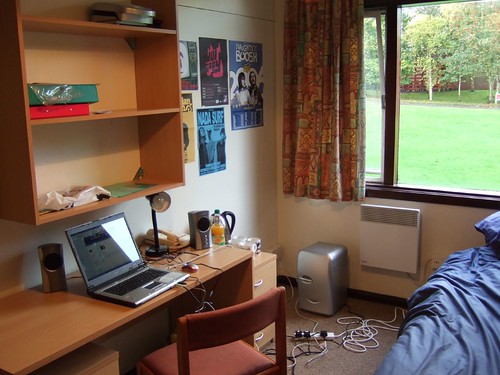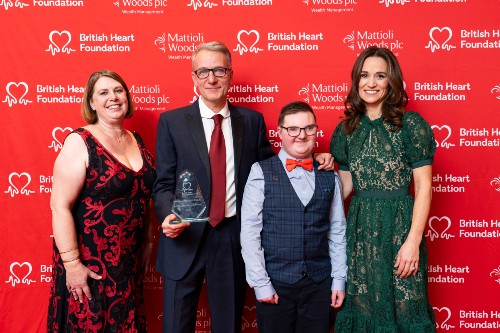Bristol researcher wins BHF Research Story of the Year for work on children’s heart plaster
Bristol University #BristolUniversity


Professor Massimo with BHF Ambassador Pippa Middleton and Calum Morris, who presented Massimo with his award. Calum Morris was born with Truncus Arteriosis and received lifesaving open heart surgery from Professor Caputo when he was just ten days old. Since then, Calum has had a further four major heart surgeries – all performed by Professor Caputo and his team. Now 17, Calum and his family wanted to say thank-you to ‘their hero’. BHF
![New stem cell plaster [left] original surgical material [right]](https://www.bristol.ac.uk/media-library/sites/news/2022/december/stemcellplaster-article.jpg)
New stem cell plaster [left] original surgical material [right] BHF
Press release issued: 7 December 2023
A University of Bristol researcher who has developed a new type of ‘heart plaster’ that could improve the way surgeons treat children living with congenital heart disease has won this year’s British Heart Foundation (BHF) Research Story of the Year. The award is part of the charity’s annual Heart Hero Awards 2023.
Massimo Caputo, BHF Professor of Congenital Heart Surgery and Consultant in Cardiothoracic Surgery in the Bristol Heart Institute at the University of Bristol, received his award at a ceremony in London last night [Wednesday 6 December]. The BHF’s Heart Hero Awards recognise people who have gone the extra mile to help those with a heart and circulatory disease.
Professor Caputo and his team, funded by the BHF, have developed the first type of mesenchymal cell seeded patch to repair abnormalities to parts of the heart that control blood flow from the heart to the lungs, and to mend holes between the two main pumping chambers of the heart.
Mesenchymal cells are a type of cell that have the ability to change into a range of cell types including muscle and cartilage. The patches have the potential to adapt and grow with the child’s heart as they get older, removing the need for repetitive heart surgeries as the heart gets bigger, and the many days at hospital recovering after each one.
Professor Caputo said: “My team and I are delighted to win the BHF Research Story of the Year. It’s an amazing recognition of all the work we have done to get to this point, and I want to thank BHF for their continued support.
“For years families have come to us asking why their child needs to go through the same heart operation many times throughout their childhood. Although each operation can be lifesaving, the experience can be extremely stressful for the child and their parents. We believe that our mesenchymal cell patches will be the answer to solve these problems.
“We hope to get the patches ready for testing in patients so clinical trials can start in the next two years. This will enable more children and babies to benefit from the life-altering technology.”
Professor James Leiper, Associate Medical Director at the British Heart Foundation, added: “We’re thrilled to have awarded Research Story of the Year to Professor Caputo. Heart surgeries are a huge ordeal for children and their families, and Professor Caputo’s development of a revolutionary ‘heart plaster’ could in future help children with congenital heart disease avoid having multiple surgeries. This award is a testament to Professor Caputo’s pioneering approach to mending hearts, and we’d like to congratulate him and his team on their achievement.”
Heart defects are the most common type of anomaly that develop before a baby is born, with around 13 babies diagnosed with a congenital heart condition every day in the UK. These include defects to the baby’s heart valves, the major blood vessels in and around the heart, and the development of holes in the heart.
Currently, for many of these children, surgeons can perform open-heart surgery to temporarily repair the problem, but the materials used for the patches or replacement heart valves cannot grow with the baby and degenerate with time. This means they can fail in a few months or years.
The mesenchymal cell plasters are designed to be sewn into the area of the child’s heart that needs repairing during surgery. The cells could then boost the repair of heart tissue without being rejected by the child’s body. The materials have already proven to work safely in animals.
There are around 200 repeat operations for people living with congenital heart disease every year in the UK. The researchers estimate the technology could save the NHS £30,000 for every operation no longer needed, saving the NHS time and millions of pounds each year.
The work was partly funded by the National Institute of Health and Care (NIHR) Bristol Biomedical Research Centre (NIHR Bristol BRC), a partnership between University Hospitals Bristol and Weston NHS Foundation Trust (UHBW) and the University of Bristol. Alumni and friends of the University of Bristol, including the Linder Foundation, have also given almost £1 million to this research since 2010.
Find out more about the ‘mesenchymal cell plasters’ research at: bristol.ac.uk/research/impact/stories/heart-plasters
About the British Heart Foundation (BHF) Heart Heroes Awards The BHF’s annual award ceremony, held at Glaziers Hall in London, celebrates those who have shown remarkable bravery or have gone above and beyond to help others while coping with the devastating impact of heart and circulatory disease.
Celebrities from the world of showbiz, music, TV and sport gathered at Glazier’s Hall, London Bridge on Wednesday 6 December 2023 to celebrate inspirational BHF supporters at the charity’s sixth annual event.
The red carpet was rolled out for awards presenters and guests including football legend David Seaman, British Olympic gymnast Becky Downie, S Club’s Tina, Jon and Bradley, TV presenter Will Njobvu, former footballer Anton Ferdinand and Pippa Middleton. Winners included dedicated healthcare professionals, people living with life threatening conditions and heart surgery survivors. The ceremony also celebrated those who have displayed exceptional courage by administering CPR, along with those who have raised vital funds for the BHF’s lifesaving research.
About the British Heart FoundationIt is only with donations from the public that the BHF can keep its life saving research going. Help us turn science fiction into reality. With donations from the public, the BHF funds ground-breaking research that will get us closer than ever to a world free from the fear of heart and circulatory diseases. A world where broken hearts are mended, where millions more people survive a heart attack, where the number of people dying from or disabled by a stroke is slashed in half. A world where people affected by heart and circulatory diseases get the support they need. And a world of cures and treatments we can’t even imagine today.
Find out more at bhf.org.uk
About the Bristol Heart InstituteThe Bristol Heart Institute is a Specialist Research Institute at the University of Bristol. We are a world-leading centre for translational cardiovascular research and the leading academic cardiac surgery centre in the UK.
We specialise in preventing, predicting, detecting, reducing and treating cardiovascular disease, bringing together scientists and clinicians from across the University and the NHS in Bristol, and training the next generation of cardiovascular scientists and clinical academics.
We harness the expertise of Bristol’s translational science community and benefit from close proximity to outstanding medical facilities, such as the Bristol Heart Institute Clinical Facility at University Hospitals Bristol & Weston NHS Foundation Trust (UHBW).
In this way, we make the journey from bench to bedside, from scientist to patient, in our fight against heart disease, still the UK’s number one killer.
About the National Institute for Health and Care Research Bristol Biomedical Research Centre (NIHR Bristol BRC)The National Institute for Health and Care Research Bristol Biomedical Research Centre’s (NIHR Bristol BRC) innovative biomedical research takes science from the laboratory bench or computer and develops it into new drugs, treatments or health advice. Its world-leading scientists work on many aspects of health, from the role played by individual genes and proteins to analysing large collections of data on hundreds of thousands of people. Bristol BRC is unique among the NIHR’s 20 BRCs across England, thanks to its expertise in ground-breaking population health research.